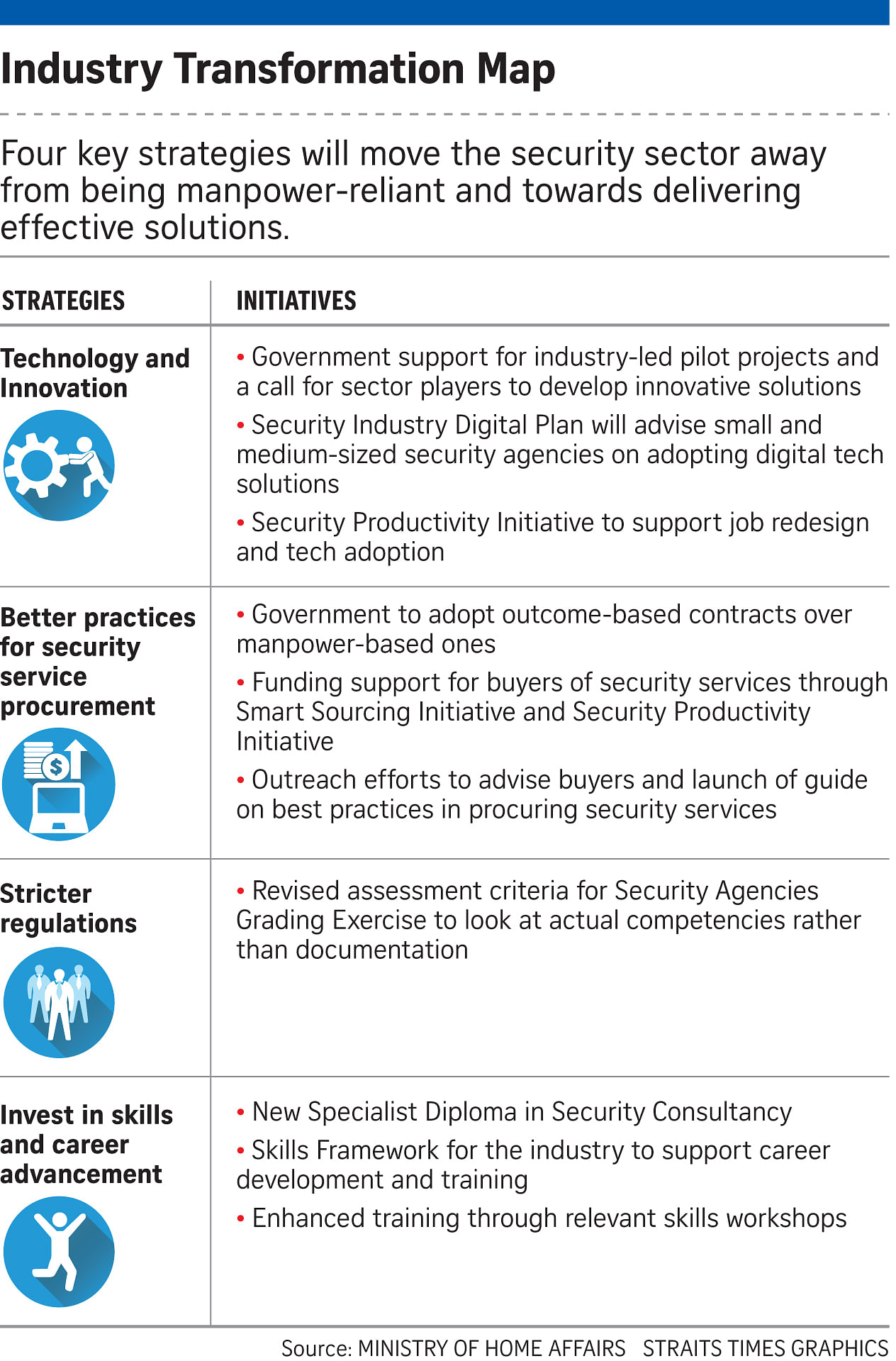Raising quality of security jobs through innovation
Sign up now: Get ST's newsletters delivered to your inbox

Senior security supervisor Eric Holmberg and two colleagues work from a roving command centre in a van that receives feeds from hundreds of closed-circuit TV cameras, allowing them to monitor large areas.
ST PHOTO: KUA CHEE SIONG
Senior security supervisor Eric Holmberg, 50, used to clock 12-hour shifts at his previous security job manually patrolling areas under his watch.
But in the past six months since joining security agency Concorde Security, Mr Holmberg and two colleagues have been working from a roving command centre in a van that receives feeds from hundreds of closed-circuit television cameras, called the i-Man Facility Sprinter.
The team keep an eye on large areas via the footage and respond to security incidents when video analytics software detects and alerts them to an anomaly.
Mr Holmberg now earns about $3,000 a month for eight hours of work a day, the same amount he got for 12-hour shifts at his previous company.
He is among the 47,000 security officers who could benefit from the Government's push to improve the working conditions and quality of security jobs through the use of technology and innovative solutions.
The push comes under the Security Industry Transformation Map (ITM) announced by Second Minister for Home Affairs and Manpower Josephine Teo yesterday.Since the implementation of the Progressive Wage Model for the security sector, wages of security guards have grown 23 per cent annually between 2014 and 2016. While "quite significant", she said more must be done for successful transformation.
Union of Security Employees executive secretary Steve Tan said the use of technology and innovative solutions must also be supported by a change in mindset. Often, security officers end up doing concierge or errand work unrelated to their role.
"Unfortunately, mindset change cannot be legislated," he said.

Mr Zainal Sapari, National Trades Union Congress (NTUC) assistant secretary-general who co-chairs the Security ITM Tripartite Committee, said: "There are still many service buyers who expect warm bodies to be around... But with greater usage of technology, security officers need to acquire new skills."
To attract and retain a security workforce that is highly skilled, a new specialist diploma in security consultancy will be introduced. The one-year part-time programme, developed by the Ministry of Home Affairs' Centre for Protective Security Studies and the Security Industry Institute under Temasek Polytechnic, will cover topics such as risk assessment, building security and security technologies. It aims to train 250 consultants by 2021, with its first intake planned for next year.
Security agencies will also face stricter requirements in the annual Security Agencies Grading Exercise that focuses more on actual assessment of competencies, rather than just documentation.
The grading exercise is done by the Police Licensing and Regulatory Department. Changes to the grading exercise, including new assessment categories like counter terrorism, will be implemented later this year.
"These new criteria will motivate security agencies to invest in staff training and retention, so as to build a team of officers who are proficient in carrying out their duties," said Mrs Teo.
SEE HOME


